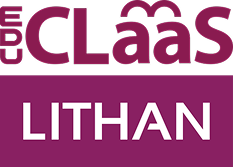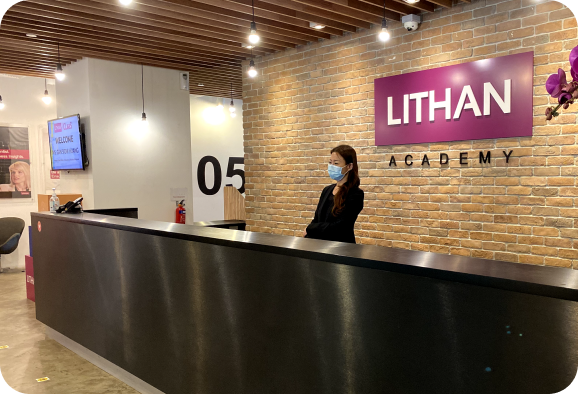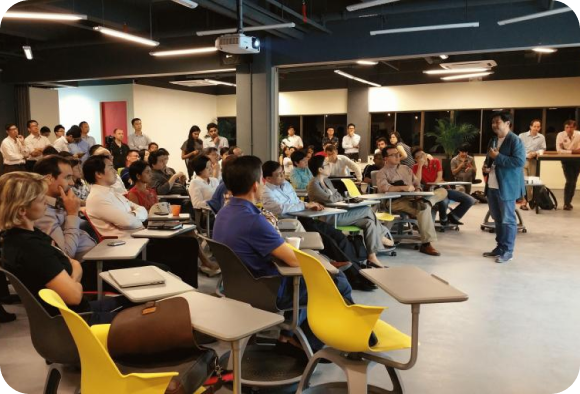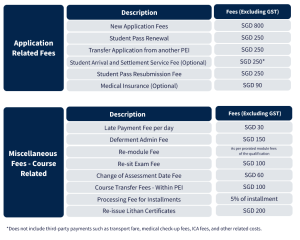Postgraduate Diploma in Software Engineering
- Homepage
- Postgraduate Diploma in Software Eng ...
Postgraduate Diploma in Software Engineering
6 months Full-Time
Software Engineering
Postgraduate Diploma
Lithan Academy, Singapore

Course Overview
The “Postgraduate Diploma in Software Engineering” equips learners with comprehensive skills and knowledge to pursue rewarding careers in the dynamic field of web development. Upon completing this program, graduates will not only have abundant job prospects but will also gain access to an exclusive opportunity to enroll in a master’s degree top-up program offered by reputable universities.
They will be well-prepared to take on various job roles, sucha s Full Stack Web Developer, Front-End Developer, Back-End Developer, and Application Developer, among others. With their newfound expertise, learners will have the capacity to produce enterprise-level applications to optimize their business process and enhance productivity, positioning themselves as valuable resources for organizations seeking high- caliber-stack development professionals
Assess software requirements to identify possible implementation obstacles and select the most suitable approach for resolving them.
Choose suitable tools, techniques, design patterns, frameworks, and software methodologies to develop robust and efficient applications.
Develop secure and scalable applications that prioritize customer satisfaction and align with business user requirements.
Strategize and execute appropriate testing methods, procedures, and tools to ensure the software’s quality and reliability.
Apply strong problem-solving and critical thinking skills to analyse complex situations, identify innovative solutions, and make informed decisions.

E-Learning
57 hours
57 hours

Flipped Class
72 hours
72 hours

Mentoring Support
271 hours
271 hours

Additional Practice
80 hours
80 hours

Assessment
4 hours
4 hours
Target Audience
- Minimum bachelor’s degree from a recognized university
- Recognized professional qualification with relevant work experience
- Polytechnic Diploma holders in IT / Computer Science with minimum 5 years of relevant working experience
- Matured candidates with relevant work experience for minimum 8 years
Admission Prerequisites
Graduation Requirements

Minimum Age:
21 Years
21 Years
Academic Qualification:
- Minimum bachelor’s degree from a recognized university
- Non-graduates with appropriate professional qualifications will be considered on a case-to-case basis
- Polytechnic Diploma holders in STEM with minimum 5 years of relevant experience will be considered on a case-to-case basis
- Matured candidates with relevant work experience for minimum 8 years will be considered on a case-to-case basis
English Proficiency:
- IELTS – 6.5 (with no elements lower than 5.5) or its equivalent

- Minimum 75% attendance in all session
- Minimum pass grade in the summative assessment of each module
Graduation Requirements

- Minimum 75% attendance in all session
- Minimum pass grade in the summative assessment of each module
Module Summary
Module 1
Module 2
Module 3
Module 4
Module 5
Module 6
Module 7
Module 8
Module 1
Programming Foundations
Equips learners, regardless of their coding experience, with essential knowledge and skills to start their coding journey. This module provides a comprehensive understanding of programming concepts and techniques, encompassing programming languages, paradigms, and program execution. By establishing a solid foundation in programming principles and terminology, learners can grasp and analyze code effectively.
What You’ll Learn
- Introduction to Programming
- Programming Fundamentals – Part 1
- Programming Fundamentals – Part 2
- Object Oriented Programming
- Testing & Documentation
Module 2
Front End Development
Acquire a deep understanding of user interface design principles, UI development tools, techniques, libraries, frameworks, single-page application development and testing. The module begins with learners acquiring a thorough comprehension of design thinking methodologies, UI heuristics, visual design principles, user experience design metrics and prototyping techniques, leading to transform the designs to user-centric websites.
What You’ll Learn
- User Interface Design Principles
- Mark-up & Styling Languages
- Responsive Design
- Scripting & Single Page Application
- Testing & Documentation
Module 3
Database Design and Implementation
Equips learners with the expertise required to excel in various facets of database management. Through the instructional units, learners acquire a holistic comprehension of data organization, database design concepts, entity-relationship modelling, normalization techniques, data definition, retrieval, maintenance, testing, and documentation. By actively participating in practical exercises and hands-on activities, learners develop proficiency in tasks such as planning database usage, creating conceptual, logical, and physical designs, optimizing queries and stored procedures, and conducting thorough testing and documentation.
What You’ll Learn
- Introduction to Database Design
- Entity-Relationship Modelling and Normalization
- Data Manipulation and Query Optimization
- Database Maintenance and Testing
- Database Documentation and Collaboration
Module 4
Generative AI – Design & Development
Offers AI application developers a comprehensive training program centered on harnessing AI technologies for enhanced productivity. Covering fundamental concepts of prompt design, participants learn to craft effective prompts for ChatGPT interactions, optimizing them to elicit desired responses efficiently. The course delves into GitHub Copilot, providing a deep dive into its capabilities and practical applications, including prompt-driven programming and business use cases.
What You’ll Learn
- Generative AI Models & Tools
- Prompt Engineering Strategies
- Content and Design Generation with Gen AI and GitHub Copilot
- Application Development with Gen AI and GitHub Copilot
- Testing and Documentation
Module 5
Web Development Foundations
Equips learners with the knowledge and skills needed to excel in the field of full-stack web development. The instructional units help them to gain a comprehensive understanding of Software Development Life Cycle(SDLC), technical design principles, back-end development principles and techniques, design patterns, application development using frameworks, testing, and documentation.
What You’ll Learn
- Fundamentals of SDLC & Technical Design
- Back-end development principles and techniques
- Design patterns
- Development using framework
- Testing & Documentation
Module 6
Develop Enterprise Applications
Acquire essential knowledge and skills required to create enterprise-level applications that align with organizational requirements. Throughout this module, learners will gain a comprehensive understanding of key topics, including enterprise application architecture, implementation of business logic and integration techniques, user interface development, and the testing, deployment,and maintenance of enterprise software.
What You’ll Learn
- Introduction to Enterprise Software Development
- Designing Enterprise Software Architecture
- Implementing Business Logic and Integration
- User Interface Development
- Testing, Deployment, and Maintenance of Enterprise Software
Module 7
Agile Project Management (Implementation)
Provides learners with a comprehensive understanding of project management and Scrum methodology implementation. The module covers essential topics such as Agile Project Management, Project Management using Scrum, Building a Scrum Team, and Scrum Planning & Implementation. Learners develop expertise in implementing Project Management using Scrum, including project planning, user story prioritization, role assignment, sprint execution, and defining sprints and success measures.
What You’ll Learn
- Agile Project Management and Project Management using Scrum
- Building a Scrum Team and Scrum Planning & Implementation
- Case Study 1 – About Product Team Implementing Scrum
- Case Study 2 – Implementation of Scrum
- Case Study 3 – Org Structure / Team Structure
Module 8
Capstone Project – Application Implementation
Marks the pinnacle of learners’ progression in mastering the design and development of enterprise-level applications within the Advanced Certificate in Software Development program. This module entails an extensive project where learners leverage their expertise to conceive, create, and deploy a practical enterprise application that optimizes business processes, unifies data, and integrates disparate systems into a cohesive environment, that enhance organizational efficiency and productivity.
What You’ll Learn
- Develop an enterprise-level application that addresses the organization’s challenges to provide a unified platform for employees across departments and regions to access real-time data, collaborate effectively, and automate repetitive tasks by prioritizing security measures to protect sensitive data and enable role-based access control.
Module 1
Module 2
Module 3
Module 4
Module 5
Module 6
Module 7
Module 8
Module 1
Programming Foundations
Equips learners, regardless of their coding experience, with essential knowledge and skills to start their coding journey. This module provides a comprehensive understanding of programming concepts and techniques, encompassing programming languages, paradigms, and program execution. By establishing a solid foundation in programming principles and terminology, learners can grasp and analyze code effectively.
What You’ll Learn
- Introduction to Programming
- Programming Fundamentals – Part 1
- Programming Fundamentals – Part 2
- Object Oriented Programming
- Testing & Documentation
Module 2
Front End Development
Acquire a deep understanding of user interface design principles, UI development tools, techniques, libraries, frameworks, single-page application development and testing. The module begins with learners acquiring a thorough comprehension of design thinking methodologies, UI heuristics, visual design principles, user experience design metrics and prototyping techniques, leading to transform the designs to user-centric websites.
What You’ll Learn
- User Interface Design Principles
- Mark-up & Styling Languages
- Responsive Design
- Scripting & Single Page Application
- Testing & Documentation
Module 3
Database Design and Implementation
Equips learners with the expertise required to excel in various facets of database management. Through the instructional units, learners acquire a holistic comprehension of data organization, database design concepts, entity-relationship modelling, normalization techniques, data definition, retrieval, maintenance, testing, and documentation. By actively participating in practical exercises and hands-on activities, learners develop proficiency in tasks such as planning database usage, creating conceptual, logical, and physical designs, optimizing queries and stored procedures, and conducting thorough testing and documentation.
What You’ll Learn
- Introduction to Database Design
- Entity-Relationship Modelling and Normalization
- Data Manipulation and Query Optimization
- Database Maintenance and Testing
- Database Documentation and Collaboration
Module 4
Generative AI – Design & Development
Offers AI application developers a comprehensive training program centered on harnessing AI technologies for enhanced productivity. Covering fundamental concepts of prompt design, participants learn to craft effective prompts for ChatGPT interactions, optimizing them to elicit desired responses efficiently. The course delves into GitHub Copilot, providing a deep dive into its capabilities and practical applications, including prompt-driven programming and business use cases.
What You’ll Learn
- Generative AI Models & Tools
- Prompt Engineering Strategies
- Content and Design Generation with Gen AI and GitHub Copilot
- Application Development with Gen AI and GitHub Copilot
- Testing and Documentation
Module 5
Web Development Foundations
Equips learners with the knowledge and skills needed to excel in the field of full-stack web development. The instructional units help them to gain a comprehensive understanding of Software Development Life Cycle(SDLC), technical design principles, back-end development principles and techniques, design patterns, application development using frameworks, testing, and documentation.
What You’ll Learn
- Fundamentals of SDLC & Technical Design
- Back-end development principles and techniques
- Design patterns
- Development using framework
- Testing & Documentation
Module 6
Develop Enterprise Applications
Acquire essential knowledge and skills required to create enterprise-level applications that align with organizational requirements. Throughout this module, learners will gain a comprehensive understanding of key topics, including enterprise application architecture, implementation of business logic and integration techniques, user interface development, and the testing, deployment,and maintenance of enterprise software.
What You’ll Learn
- Introduction to Enterprise Software Development
- Designing Enterprise Software Architecture
- Implementing Business Logic and Integration
- User Interface Development
- Testing, Deployment, and Maintenance of Enterprise Software
Module 7
Agile Project Management (Implementation)
Provides learners with a comprehensive understanding of project management and Scrum methodology implementation. The module covers essential topics such as Agile Project Management, Project Management using Scrum, Building a Scrum Team, and Scrum Planning & Implementation. Learners develop expertise in implementing Project Management using Scrum, including project planning, user story prioritization, role assignment, sprint execution, and defining sprints and success measures.
What You’ll Learn
- Agile Project Management and Project Management using Scrum
- Building a Scrum Team and Scrum Planning & Implementation
- Case Study 1 – About Product Team Implementing Scrum
- Case Study 2 – Implementation of Scrum
- Case Study 3 – Org Structure / Team Structure
Module 8
Capstone Project – Application Implementation
Marks the pinnacle of learners’ progression in mastering the design and development of enterprise-level applications within the Advanced Certificate in Software Development program. This module entails an extensive project where learners leverage their expertise to conceive, create, and deploy a practical enterprise application that optimizes business processes, unifies data, and integrates disparate systems into a cohesive environment, that enhance organizational efficiency and productivity.
What You’ll Learn
- Develop an enterprise-level application that addresses the organization’s challenges to provide a unified platform for employees across departments and regions to access real-time data, collaborate effectively, and automate repetitive tasks by prioritizing security measures to protect sensitive data and enable role-based access control.
Certification(s)

Certification(s) Earned
- Postgraduate Diploma in Software Engineering awarded by Lithan Academy
*Taking this certification is optional. However, if the learner chooses to do so, they must register for the examination and pay any applicable fees. Please note that some certifications may be offered for free. For detailed information, kindly refer to the official website of the certification.
About Lithan Academy (eduCLaaS)
Lithan Academy is a 4-year EduTrust certified and SkillsFuture-registerd education institute based in Singapore. We are also an accredited international training center for Pearson UK
We are recognized for our learning innovation with local and international awards including the Microsoft Global Learning Partner of the Year Award (Top 3) in 2018, Asia’s Pearson’s College of the Year (Bronze) Award in 2019, and AsiaPac CIO’s Top 10 Edutech Solution Provider Award in 2020, amongst others.
Our innovation CLaaS® delivers Competency Learning as a Service to bridge the digital skills gap with competency-based curriculum and work-based learning pedagogy. We have served over 50,000 learners and 2000 enterprises with an above 90% completion rate.


